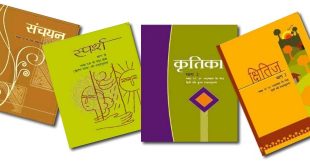Question: Who all formed readership of the Novels in England and France?
Answer: New groups of lower middle class people such as shopkeepers, clerks along with Aristocracy and gentlemanly in England & France formed the now readership for Novels.
Question: What are 3 types of novels?
Answer:
- Apistolary Novels: The novels are written in the form of series of letters, personal and private to till its stories.
Samuel Richard son’s Pamela written in 18th century is a story through an exchange of letter b/w two lowers. These letters till the reader about the hidden conflicts in the heroines mind. - Historical Novels: Water Scott.
- Serialised Novels: A format in which story is published in instalment, each part in a new issue of journal. Harry Patter.
Question: Name the novels written by Merry fielding?
Answer: The name of the novel is Tom Jones.
Question: Explain how after 1740 the readership of novels began to include the poors people?
Answer:
- Earlier the market excluded poors as Henry fielding’s novel was issued in six volumes priced at 3 shillings each which was more that what the labourers earned in a week.
- People had easier access to books with the introduction of circulatory libraries in 1740.
- In France, publishers found that they could make super profits by hearing out novels by hour.
Question: How Jane Auston’s novel give up a picture of the world of women?
Answer:
- The novels of Jane Auston give us a glimpse of world of women.
- They make us think about a society which in-courage women look for good marriages find wealthy or propertied husbands.
Question: What kind of stories were written for adolescent girls in novels?
Answer:
- Lave stories written for adolescent girls also first become popular in this period,especially in the US, notably Ramona (1884) by Helen Munt Jackson.
- A series entitled what Katy did (1872) by Sarah Chauncey Woolsey, who wrote under the pen name Susan Coolidge become popular.
Question: Explain the writing of Premchand?
Answer:
- In his novels you meet aristocrats, landlords, middle level peasants, etc.
- The women characters are strong individuals.
- Novels look towards the future.
- He began writing in Urdu and then shifted to Hindi.
Question: Explain the novel Rangbhoomi of Premchand?
Answer:
- The untral character of his novel Rangbhoomi (The Arena). Surdas is a usually impaired beggar from a so – called ‘Untouchable Cast’.
- The every act of choosing such a person as ‘Hero’ of a novel is significant.
- It makes the lives of other most oppressed sections of society as worthy of literacy reflection.
- We see Surdas struggling against the forcible take our of his land land for establishing a tobacco factory.
- The story of Surdas was inspired by Gandhi’s personality and ideas.
Question: What is Hardy’s Mayor of Casterbridge about?
Answer:
- In Hardy’s Mayor of Casterbridge (1886). It is about Micheal Hen-chard a success feel grain merchant who becomes the Mayor of farming town in laster bridge.
- He can also be the both unpredictably generous and cruel with his employees.
- Donald farfrae who runs his business on efficient managerial line and is well regarded for he is smooth and even compared with everyone.
Question: How women were involved in world of Novels?
Answer:
- The 18th century saw the middle class become more prosperous.
- Novels began exploring the world of women their emotions identities, their experience problems.
- Many novels were about domestic help a them about which womens were allowed to speak with authority.
Question: What Is a novel ? Mention any two features of novel.
Answer: Novel is a modern form of literature that describes fictional characters and events, usually in the form of sequential story. Features:
- Novels began to be written from the 17th century, but really flowered from the 18th century.
- Most of the novels were written on social issues such as marriage relationship, the proper conduct of men and women etc.
Question: Explain the themes and issues of the novels of Thomas Hardy.
Answer:
- Thomas Hardy was a British novelist of the 19th century. He wrote about traditional rural communities of England.
- This was actually a time when large farmers fenced off land, bought machines and employed labourers to produce for the market. The old rural culture with its independent farmers was dying out.
- In his novel Mayor of Casterbridge (1886) Thomas Hardy has exclusively written about industrialization and rural life. The novel is about Michael Henchard, a successful grain merchant, who becomes the mayor of the farming town of Casterbridge. He is an independent-minded man who follows his own style in conducting business. He can also be both unpredictably generous and cruel with his employees. Consequently, he is no match for his manager and rival Donald Farfrae who runs his business on efficient managerial lines and is well regarded for he is smooth and even-tempered with everyone.
- We can see that Hardy mourns the loss of the more personalised world that is disappearing, even as he is aware of its problems and the advantages of the new order.
 Class Notes NCERT Solutions for CBSE Students
Class Notes NCERT Solutions for CBSE Students





